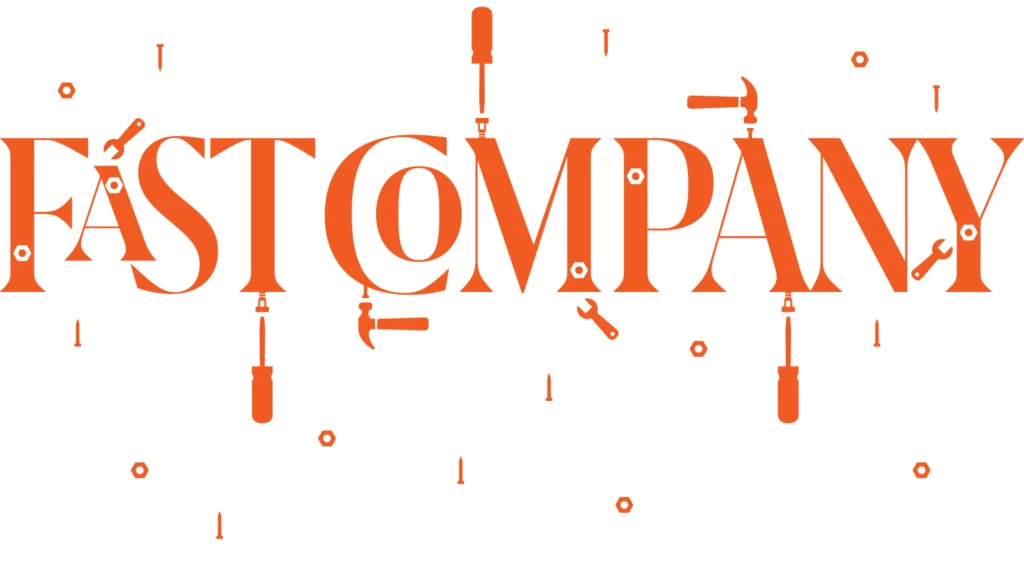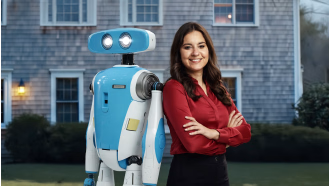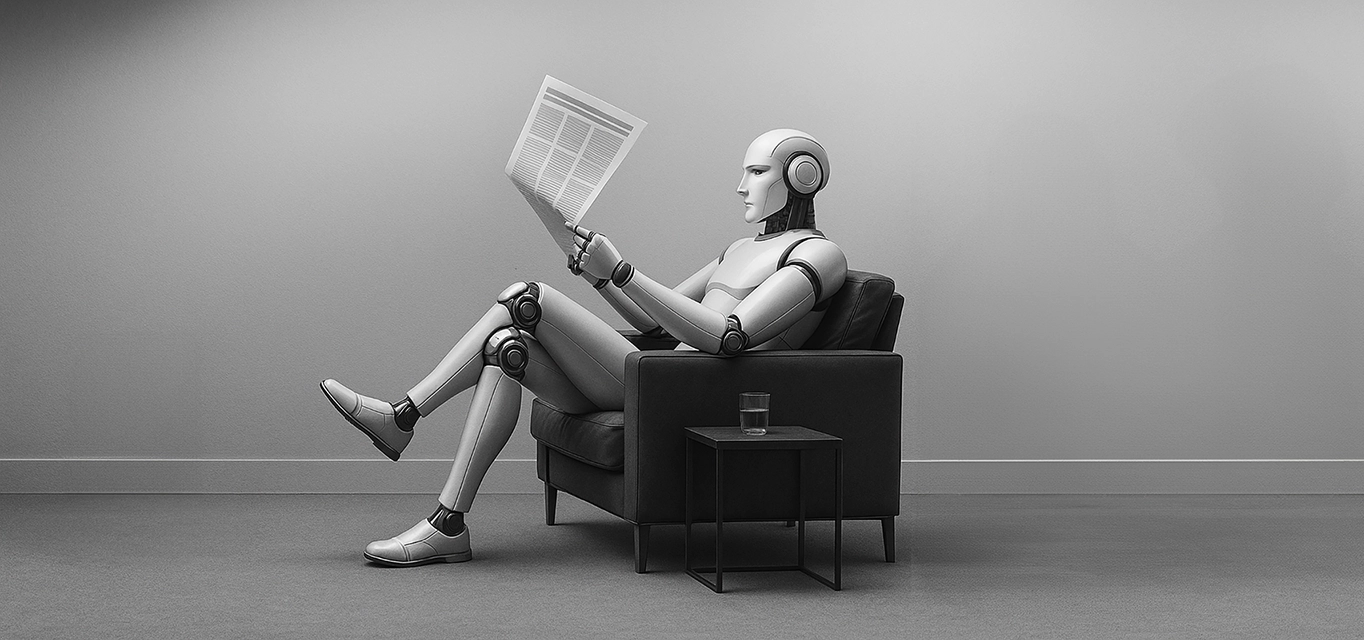Article 1

✅ Fast Company: Executive Summary
Using AI at Work Requires Confidence. Here’s How to Build It
By: Greg Edwards | Republished by Fast Company from The Conversation | Date: June 3, 2025
Category: AI Adoption & Workforce Training
🔍 Overview
Despite massive AI investment, many workers remain hesitant to adopt new tools—often due to a lack of confidence rather than resistance. This article explores how self-efficacy, not just skill, determines effective AI use and what leaders can do to support it.
💡 Key Insights
- Confidence > Skill: Technological self-efficacy is crucial for AI adoption—workers must believe they can use AI effectively.
- Not Resistance, But Readiness: Many employees avoid AI tools because they don’t feel prepared to use them correctly.
- Training Must Be Targeted: Role-specific, real-world training is more effective than broad, generic AI workshops.
- Generational Gaps Persist: Skepticism among older workers can be traced to early AI misfires and unfamiliarity.
🛠 Recommended Solutions
- Customize Learning: Focus on practical, job-relevant AI training with real use cases.
- Encourage Experimentation: Use low-pressure environments like “prompting parties” to practice and explore tools.
- Use Bandura’s Four Pillars:
- Mastery experiences (succeeding through practice)
- Vicarious experiences (seeing others succeed)
- Positive reinforcement (encouraging feedback)
- Emotional support (managing anxiety, energy)
🧠 Why It Matters for SMBs
For small and mid-sized businesses, investing in people—not just platforms—will drive real AI productivity gains. Confidence-building training aligned to actual roles helps employees embrace AI as a partner, not a competitor.
https://www.fastcompany.com/91343689/ai-adoption-work-user-confidence-tips
Greg Edwards is an adjunct lecturer at Missouri University of Science and Technology. This article is republished from The Conversation under a Creative Commons license. Read the original article:
https://theconversation.com/the-biggest-barrier-to-ai-adoption-in-the-business-world-isnt-tech-its-user-confidence-257308
Podcast 1

“OpenAI’s GPT-5 Leads Hot AI Summer”
Key Highlights
OpenAI’s Major Announcements: The episode centers on OpenAI’s aggressive push toward GPT-5, with CEO Sam Altman declaring the arrival of “Hot AI Summer.” Following the roadmap outlined in February 2025, OpenAI released GPT-4.5 “Orion” in February and GPT-4.1 in May, setting the stage for GPT-5’s anticipated July launch. The podcast explores how this represents the most significant leap in AI capabilities since the GPT-3 to GPT-4 transition.
Competitive Landscape: The discussion highlights the intensifying competition between OpenAI, Google, and Anthropic, with state-of-the-art models pushing each company to accelerate development timelines. The hosts examine how this competition is driving rapid innovation and forcing OpenAI to maintain its market leadership position.
Enterprise Focus: ChatGPT for Business receives significant attention, with new enterprise features including record mode capabilities that allow businesses to capture and analyze AI interactions. This enterprise push represents OpenAI’s strategy to monetize its technology at scale while competing with Google’s Workspace integration and Anthropic’s Claude enterprise offerings.
Technology Deep Dives
AI Gaming Revolution: Epic Games CEO Tim Sweeney’s prediction that AI will enable small teams to create AAA games like “Breath of the Wild” receives detailed analysis. The hosts explore how AI-generated dialogue, character development, and world-building could democratize game development, potentially requiring only 10 developers for projects that previously needed hundreds.
Open-Source Innovation: Flux Kontext emerges as a significant development in open-source AI imaging, offering advanced photo restoration and image manipulation capabilities. The podcast demonstrates how open-source alternatives are challenging proprietary solutions and accelerating innovation across the AI imaging landscape.
Video Generation Breakthrough: Google’s VEO 3 showcases remarkable progress in AI video generation, with the synchronized swimming cats demonstration serving as a cultural touchstone for AI’s creative capabilities. The hosts discuss how these advances are pushing the boundaries of what’s possible in AI-generated content.
Industry Developments
Reconciliation and Partnerships: The Palmer Luckey and Mark Zuckerberg reconciliation over the Eagle Eye defense project represents a significant shift in Silicon Valley relationships, demonstrating how AI and defense applications are creating new strategic alliances.
Music Industry Negotiations: Suno and Udio’s ongoing talks with major record labels signal a potential resolution to AI music generation copyright concerns, which could unlock significant commercial opportunities for AI-generated music.
Robotics Renaissance: Marc Andreessen’s prediction that robotics will become “the biggest industry in the history of the planet” receives analysis, with discussion of sub-$1000 humanoid robots from Unitree and breakthrough demonstrations like ETH Zurich’s badminton-playing robot.
Market Implications
Investment Trends: The podcast examines how “Hot AI Summer” is driving unprecedented investment in AI startups and infrastructure, with particular focus on enterprise applications and developer tools.
Platform Wars: The discussion reveals how major tech companies are positioning themselves for the next phase of AI adoption, with OpenAI’s enterprise focus, Google’s integration strategy, and Anthropic’s safety-first approach representing different paths to market dominance.
Developer Ecosystem: Tools like Windsurf and the ongoing “Claude vs. OpenAI drama” highlight how developer preferences are shaping the AI landscape, with implications for which platforms will dominate in the long term.
Cultural Impact
Viral Moments: The synchronized swimming cats video exemplifies how AI-generated content is becoming part of popular culture, with implications for entertainment, advertising, and social media.
Accessibility: The democratization of AI tools is enabling creators without technical backgrounds to produce sophisticated content, potentially disrupting traditional creative industries.
Future Predictions: The hosts explore scenarios where AI capabilities continue to accelerate, discussing potential impacts on employment, creativity, and human-AI collaboration.
Conclusion
The June 5, 2025 episode captures a pivotal moment in AI development, with GPT-5’s impending release serving as a catalyst for industry-wide acceleration. The “Hot AI Summer” theme reflects both the rapid pace of technological advancement and the growing mainstream adoption of AI tools across industries. Key takeaways include the intensifying competition among AI leaders, the enterprise market’s growing importance, and the emergence of AI as a creative and productive force across multiple sectors.
The podcast successfully balances technical analysis with accessible explanations, making complex AI developments understandable for both technical and general audiences while highlighting the transformative potential of these technologies for businesses, creators, and society at large.
Podcast 2

OpenAI’s Sam Altman Talks ChatGPT, AI Agents and Superintelligence — Live at TED2025
Sam Altman, CEO of OpenAI, joins TED’s Chris Anderson for a candid conversation on the future of AI.Recorded live at TED2025, the discussion explores ChatGPT’s rapid evolution, the rise of AI agents, and the moral questions surrounding superintelligence. Altman shares his vision of AI as a lifelong assistant, reflecting on safety, creative ownership, and the immense responsibilities facing today’s tech leaders.
✅ TED2025 Executive Summary
Sam Altman Talks ChatGPT, AI Agents and Superintelligence — TED2025
Speaker: Sam Altman (CEO, OpenAI) | Host: Chris Anderson (TED) | Date: April 11, 2025
Category: AI Leadership & Ethics
🔍 Overview
Sam Altman discusses the explosive growth of AI, the future of agentic software, creative rights in generative AI, and the moral complexity of leading the AI revolution. The conversation emphasizes the importance of safety frameworks and global cooperation.
💡 Key Themes
- Integrated AI Assistants: GPT models will evolve into personalized, lifelong digital companions with memory.
- Beyond AGI: Focus should shift from defining AGI to building governance for systems beyond human intelligence.
- Agentic AI Safety: New challenges emerge as AI systems gain autonomy to act on the internet.
- Creative Ownership: Altman supports opt-in models to compensate living creators for AI-generated works in their style.
- Open Source Promise: OpenAI will release a near-frontier open-source model to support responsible innovation.
- Science Acceleration: New models are already improving productivity in scientific fields like medicine and physics.
- Governance Commitment: A preparedness framework and possible third-party oversight aim to ensure safe AI deployment.
- Public Trust: Altman invites broader input, urging collective responsibility rather than elite gatekeeping.
🧠 Why It Matters for SMBs
AI agents are poised to revolutionize productivity. SMBs should explore integration early to stay competitive. Understanding ethical frameworks, consent, and trust will shape both AI adoption and public acceptance.

🎬 Executive Summary: “We Made a Film With AI. You’ll Be Blown Away—and Freaked Out”
Author: Joanna Stern, Senior Personal Tech Columnist, The Wall Street Journal
Published: May 28, 2025 – WSJ
Context: Stern and co-producer Jarrard Cole directed a 3-minute short film entirely using AI video tools including Google Veo 3 and Runway AI.
📽️ What It Is
The WSJ team set out to create an original short film—My Robot & Me—entirely generated by AI. Every visual, and almost every audio element, was produced using cutting-edge AI tools. What began as a fun experiment turned into a revealing crash course in the creative demands and technical limitations of AI filmmaking.
💡 Why It Still Matters
- Creative Explosion: Tools like Google Veo and Runway now let users generate cinematic-quality visuals—no cameras or crews required.
- Still Hard Work: Despite the automation, meaningful content still requires human craftsmanship, from storyboarding to prompt engineering.
- Human + AI = Future Filmmaking: AI enables low-budget creators to produce high-concept content—but can’t replace the need for originality and storytelling skill.
📈 Implications for SMB Executives
- Marketing & Content: AI video tools drastically lower the barrier for professional video production. Executives can experiment with AI-driven ads, explainers, or internal training content.
- Creative Roles Are Changing: Future teams may rely on hybrid talent—part creative, part prompt engineer—to unlock the full potential of AI media.
- Budget Reallocation: AI video tools shift spend from logistics (crews, sets, gear) to ideation and post-production strategy.
🎞️ Key Takeaways
- You can generate anything: From surreal sci-fi cities to realistic human performances, visual possibilities are endless.
- You still do the work: Every prompt, scene, and transition required trial-and-error, rewriting, and human oversight.
- You need human creativity: AI offers tools—not shortcuts. Sloppy input leads to “slop” output. Only human intention gives AI-generated content coherence and purpose.
“These tools are nothing without human input, creativity and original ideas. As the film hopefully reminded you, we are not robots. Live a little.”
🔗
Read the full article at WSJ
https://www.wsj.com/video/series/joanna-stern-personal-technology/we-made-this-film-with-ai-its-wild-and-slightly-terrifying/D17B233B-1E06-400D-9095-B5247306DD38?mod=author_content_page_1_pos_1
Summary by ReadAboutAI.com

📘 Executive Summary: “Inspiration – The Quintessence Of Education Amid AI”
Author: Dr. Cornelia C. Walther
Published: May 23, 2025 – Forbes
Background: AI researcher, humanitarian leader, and Wharton Fellow pioneering hybrid intelligence and prosocial AI through the global POZE alliance.
🌟 What It Is
This article reframes AI not as a threat to education, but as a powerful tool to reignite what has been lost in modern classrooms: inspiration. Dr. Walther critiques the standardization of education, arguing that overemphasis on testing has dulled students’ innate curiosity. She calls for a return to learning that is emotionally engaging and cognitively transformative.
🕰️ Why It Still Matters
- Inspiration Builds Brains: Cognitive science supports that deep engagement creates new neural connections and long-term learning capacity.
- AI as Ally, Not Adversary: Properly used, AI frees teachers and students to focus on creativity, inquiry, and exploration.
- Hybrid Intelligence: Emphasizing both human literacy (empathy, ethics, critical thinking) and algorithmic literacy (understanding AI systems) is essential in preparing future-ready learners.
📈 Implications for SMB Executives
- Education Strategy: Companies working with schools or training talent must prioritize inspirational, human-centered learning.
- AI Training Design: Corporate learning platforms should use AI to personalize experiences and cultivate curiosity, not just efficiency.
- Leadership Mindset: The next workforce will demand environments that support agency, creativity, and hybrid collaboration with AI tools.
🔧 The INSPIRE Framework (For Teachers & Leaders)
- Ignite Curiosity
- Nurture Exploration
- Spark Creativity
- Personalize Learning
- Integrate Ethics
- Reflect Critically
- Empower Agency
“The anxiety surrounding AI’s impact on learning is a signal — not a sentence. We can use AI to reignite the joy of discovery, not erase it.”
Summary by ReadAboutAI.com

🎙️ Executive Summary: “AI Companions, Human Friends & Age Gates”
Podcast: Possible
Hosts: Reid Hoffman & Aria Finger
Episode Date: May 28, 2025
Summary Type: Solo riff by Reid Hoffman with commentary by Aria Finger
🧠 What It Is
In this “Riff” episode, Reid Hoffman explores the rising trend of AI companions being marketed as emotional support or even friendship—prompted by Meta CEO Mark Zuckerberg’s recent comments on using AI to combat loneliness. Reid draws a critical distinction between companions and true human friends, emphasizing that friendship requires mutual, two-way commitment and personal growth—something AI, no matter how advanced, cannot authentically provide.
💡 Why It Still Matters
- Redefining Relationships: As AI becomes more human-like, society risks confusing artificial companionship with authentic friendship, which could erode emotional development and accountability.
- Ethical Urgency: Hoffman warns that AI companions must be transparent about their role and limits. Misrepresenting them as friends may cause psychological harm or manipulation.
- Regulatory Horizon: Hoffman suggests a ratings system (akin to the MPAA) or even legislation to create transparency and prevent abuse in AI-human interactions.
📈 Implications for SMB Executives
- Customer Relationship AI: Avoid framing bots or AI tools as “friends.” Build trust by clearly stating capabilities and maintaining ethical guardrails.
- Workplace Tools: AI companions may serve well as coaches, assistants, or tutors, but should not replace peer connection, mentorship, or interpersonal relationships.
- Brand Accountability: As consumer-facing AIs expand, brands must be transparent about purpose and data usage—especially when AI is deployed for vulnerable users (children, seniors).
🔍 Key Takeaways
- Companions ≠ Friends: Friendship is reciprocal. AI can support but not substitute real human connection.
- Transparency Is Vital: Users must know what their AI agent is trained to do, why, and for whom.
- Safeguards for Youth: Reid predicts future generations will grow up with lifelong AI companions—raising massive questions about parental control, ethics, and societal norms.
- Liability Looms: Unlike users, AI agents are not protected under Section 230—putting full responsibility on tech companies.
“An AI telling you it’s your best friend isn’t just wrong—it’s dangerous. Companions should guide you back to your real-life connections.”
Summary by ReadAboutAI.com

Podcast Summary: Demis Hassabis on AI, Games, Creativity, and the Future
Podcast Series: Possible.fm
Air Date: April 9, 2025
Guest: Demis Hassabis, CEO of Google DeepMind
Hosts: Reid Hoffman & Aria Finger
What It Is
This rich interview with Demis Hassabis—CEO of DeepMind—offers a deep dive into the frontiers of artificial intelligence: from AlphaGo and AlphaFold to robotics, game theory, and the future of creative collaboration. He explores how AI systems learn, how games simulate intelligence, and how multimodal models are driving progress in medicine, robotics, and coding. It’s a masterclass in how AI is reshaping science and society.
Why It Matters
- Foundational View: Hassabis helped pioneer deep reinforcement learning and transformative models like AlphaGo and AlphaFold.
- Multimodality: Future AI must integrate text, image, sound, and physical context to serve as effective assistants.
- Scientific Acceleration: Tools like AlphaFold enable “science at digital speed,” solving problems previously considered intractable.
- Human-AI Symbiosis: Natural language coding and visual interfaces will empower non-coders, creators, and small businesses.
- Global Inclusion: DeepMind’s location in London symbolizes a need for broader geographic and philosophical inclusion in AI’s future.
Key Highlights
- Games as Simulations: Games provide measurable, dynamic environments for training and benchmarking AI systems (e.g., Go, StarCraft).
- AlphaGo’s Move 37: A creative, unexpected decision that even world champions couldn’t explain—proof of machine intuition.
- AlphaFold: Solved the 50-year protein folding problem; predicted structures for 200M+ proteins, accelerating drug discovery worldwide.
- Synthetic Data: Key to expanding training datasets, especially in areas like code, math, and gameplay where correctness is verifiable.
- Embodied Intelligence: While reinforcement learning once required real-world robotics, DeepMind’s video models like Veo now extract physics knowledge from passive YouTube viewing.
- Multimodal Models: Gemini and Veo integrate language, video, and spatial reasoning—vital for robotics, assistants, and creative work.
- Vibe Coding: The next phase of programming where humans use natural language to direct AI systems in code and design tasks.
- Geographic Diversity: DeepMind’s Europe-based mission challenges Silicon Valley dominance and brings new cultural values to AGI design.
- AI for Good: Hassabis highlights two urgent goals for AI: improving human health and solving energy/climate challenges.
Implications for SMB Leaders
- Enhanced Productivity: AI co-pilots can speed up everything from customer service to proposal creation to software development.
- Training AI with Simulations: SMBs can create sandbox-style simulations for logistics, marketing, or scenario planning.
- Embrace Vibe Coding: No-code platforms will allow business leaders and creatives to build apps, dashboards, or automations themselves.
- Medical & Scientific AI: Healthcare startups and research-oriented SMBs should explore applications of AlphaFold data and spinouts like Isomorphic.
- Global Strategy: Companies should watch for innovation not only from the U.S., but also from Europe, China, and open-source labs worldwide.
Final Quote
“If AI is going to be like electricity or fire—more impactful than even the internet or mobile—then I think it’s important that the whole world participates in its design.”
— Demis Hassabis
Demis Hassabis on AI, game theory, multimodality, and the nature of creativity
Summary by ReadAboutAI.com
↑ Back to Top